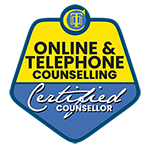No is such a tiny little word, so how come it can so often feel overwhelmingly impossible to say?
It’s all about boundaries
Our ability to set a boundary – or to be on the receiving end of one – may come from a belief we are not even aware of. Experiences from when you were a child, past trauma or the way your parents treated you, could well be being played into. Perhaps you feel that you aren’t good enough, or fear you’ll be rejected if you say no. You worry that other people will think you’re not a good person when you act as yourself with healthy limits and that you’ll lose them.
Speak up for what you need. Show that you are someone who has healthy limits. Constantly putting all your energy into worrying you’re letting other people down and that they’ll somehow think less of you is exhausting and gets you nowhere.
Weak boundaries can feel like:
- You’re giving a lot and not getting much back.
- You’re exhausted, tired, burned out.
- You’re being misunderstood or unheard.
- You are taken advantage of.
Humans are social beings. We worry that by saying no, we might upset people. We can worry that everyone else is doing something that we might be missing out on (FOMO anyone?). Decision-making is hard, so it feels easier to say yes.
No wonder saying no is difficult
You want to say yes, not necessarily because you want to say yes, but because it feels rude to say no. The problem with being a people-pleaser is the only person you aren’t making happy is yourself. It can really impact on your mental health leading to anxiety or depression. It’s time to start putting yourself back in the central position in your life.
Remind yourself that you are not powerless anymore. Use your voice and exercise your boundary muscle. And if someone gets angry that you’ve said no, it doesn’t mean that you should have said yes.
Some ‘go-to’ no phrases you can use
Starting with ‘thanks’ can make it feel easier. Such as:
- ‘Thanks for thinking of me… but I won’t be able to come.’
- ‘Thank you, that sounds lovely, but I won’t be able to… maybe next time.’
- ‘Thank you. Let me think about that and get back to you…’ (This buys you some more time, so can be handy in you understanding how you really feel).
Or how about a simple, ‘No, thanks’?
Boundaries are good for you and the people around you. No doesn’t mean rejection, it just means ‘not now’. It reflects your current situation, not how you feel about them.
Practise setting boundaries and saying no
Boundaries can be hard to set, but the more you do it, the easier it gets. And if things don’t go as you might have wanted them to, then that’s OK too. Taking one step at a time is often all it takes to feel unstuck.
If people aren’t used to you saying no, that’s OK too. They’ll get used to it.
When you feel like you want to say no but don’t speak up, consider this a chance to learn. What might you do differently? Did you want to say no but felt too overwhelmed? If you could turn back time, what would you say differently? Have that in your mind and practice saying it to yourself.
Please don’t beat yourself up!
You can feel stuck in the moment and it might be easier in the short term to say yes. The truth is, saying yes can come at a cost if you end up doing something you don’t want to. It may be you’re stuck in a pattern of avoiding your feelings and needs. And the result of this can be a cost to your mental health and wellbeing.
Think of the consequences of saying yes to something you don’t want to do
Will this lead to me feeling resentful, angry, anxious? Or that the other person now ‘owes’ me. Will it make it more difficult for me when this person next says no to me? How will saying yes when I’d rather say no, impact the other person and our relationship? Is it really worth it?
If you see saying no as a way to help to strengthen your relationship, it might make it easier to do. It also means the things you do say yes to you’re likely to enjoy – quality over quantity – which will help you feel calmer, happier and better able to engage and be present with people. This means that it’s easier to be there when your loved ones need you to be there for them.
Think of being able to say no as your superpower!
Seeing a counsellor can help you by talking through patterns of pleasing people you might have.
It will help you get a better understanding of yourself. Counselling is also an opportunity to delve a little deeper into where these patterns have come from and how putting boundaries in place are good for you and your family.
If this has resonated with you, why not get in touch HERE to see how I can help you. I’m based in East Sussex but I work online so you can have the therapy you need in a place that is convenient for you.







